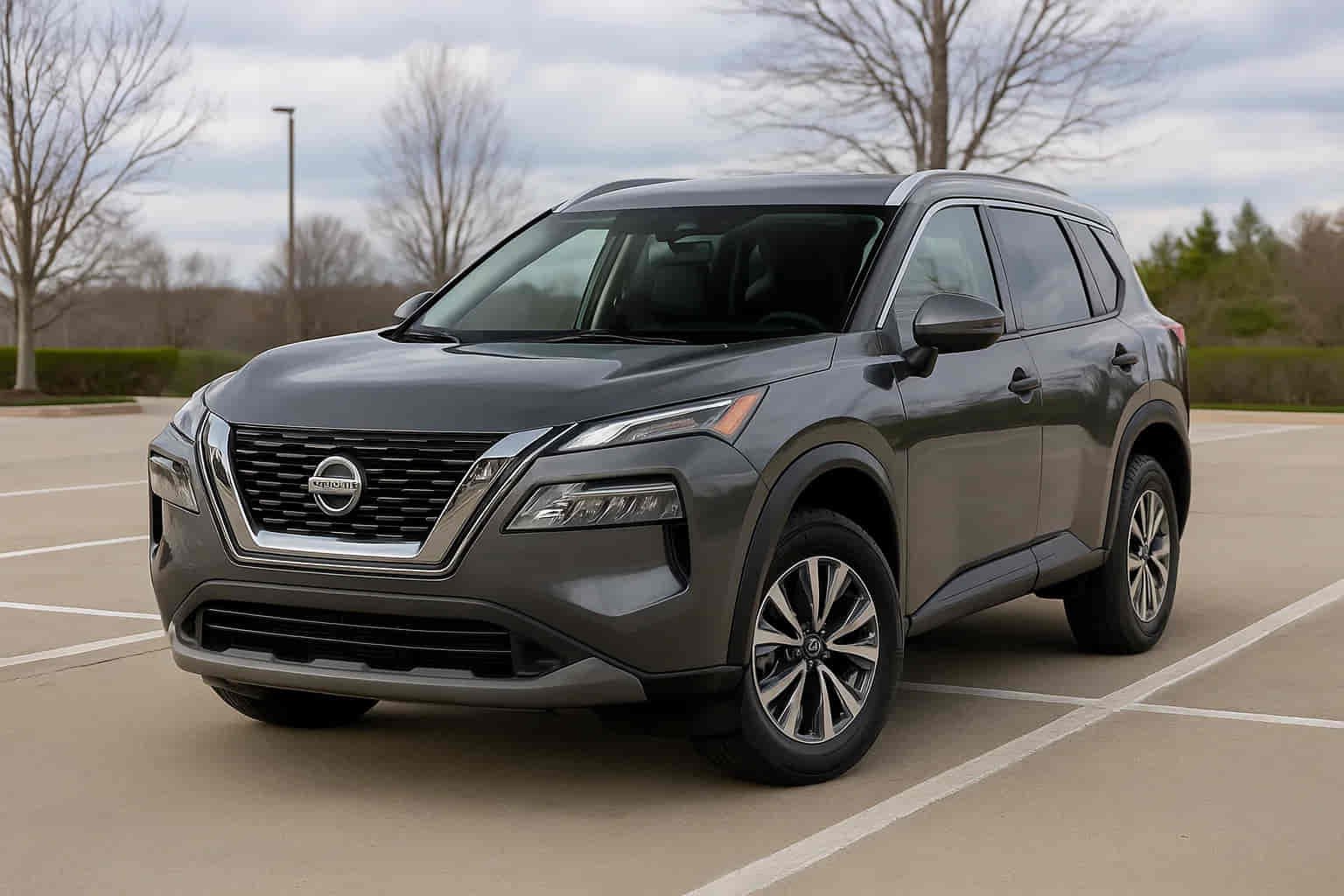Are Nissan Rogues reliable or not? It’s a question that thousands of SUV shoppers keep asking every year. The Nissan Rogue has become one of the brand’s best-selling models in North America, thanks to its comfortable ride, modern design, and attractive price point. Yet, behind the popularity lies a debate: some owners praise its fuel efficiency and family-friendly features, while others warn about costly repairs and transmission concerns.
For anyone considering a Rogue, reliability is more than just a technical spec—it’s the difference between a smart long-term investment and a regretful purchase. A reliable car brings peace of mind, lower maintenance costs, and confidence on long drives. An unreliable one can quickly turn into a financial burden.
This guide goes beyond surface-level reviews. By looking at expert ratings, real-world owner feedback, and comparisons with competitors like Toyota RAV4 and Honda CR-V, we’ll uncover whether the Nissan Rogue is truly dependable. Before you sign the deal, here’s what you need to know about how well the Rogue holds up over time.
History & Reputation of the Nissan Rogue (2008–2025)
When the Nissan Rogue debuted in 2008, it entered a crowded compact SUV market with a simple promise: to deliver affordability and everyday practicality without sacrificing comfort. Over the years, the Rogue has grown into Nissan’s best-selling model in the United States, evolving through three generations that added sharper styling, advanced safety features, and improved technology to stay competitive.
Its journey, however, has not been without controversy. While many drivers praise the Rogue for its roomy cabin, smooth ride, and fuel efficiency, reliability has often been the subject of debate. Much of this reputation comes down to Nissan’s CVT (continuously variable transmission). Designed to improve efficiency and provide seamless acceleration, the CVT instead became a frequent source of owner complaints, particularly in older models where costly repairs were not uncommon.
By 2025, the Rogue stands as one of the most recognizable names in the compact SUV class. It may not carry the same rock-solid reputation as the Toyota RAV4 or Honda CR-V, but its strong sales prove it appeals to buyers looking for value, comfort, and a lower entry price point. This combination of widespread popularity and lingering questions about durability forms the Rogue’s unique reputation—one that prospective buyers must weigh carefully before making a decision.
Reliability Ratings from Experts and Industry Data
When it comes to measuring whether Nissan Rogues are reliable, the most trusted sources are industry reports and long-term owner surveys. According to J.D. Power’s dependability studies, the Rogue has typically scored in the “average” range—never among the worst in its class, but not quite at the top either. Consumer Reports echoes this assessment, often ranking the Rogue in the middle of the compact SUV segment with moderate scores for predicted reliability.
RepairPal gives the Rogue a reliability rating of 4.0 out of 5.0, placing it slightly above average for compact SUVs. The annual maintenance cost averages around $467 per year, which is lower than many competitors. However, this number can be misleading. While routine service is affordable, unexpected transmission repairs or replacements can drive costs dramatically higher.
Owner feedback paints a similar picture. Many drivers report years of trouble-free performance, especially with newer models, but older Rogues—particularly those built between 2008 and 2015—were prone to CVT issues and electrical faults. These recurring problems have been significant enough to affect the model’s reputation, even as Nissan has worked to refine the transmission in later generations.
Common Problems with the Nissan Rogue
While the Nissan Rogue offers comfort and practicality, its reliability record is shaped by a few recurring issues that buyers should be aware of. The most notable concern has long been the continuously variable transmission (CVT). Many owners of earlier models reported jerking, hesitation, or even complete transmission failure—repairs that can cost thousands of dollars. Although Nissan has made improvements in recent years, the CVT remains the single biggest factor in debates about the Rogue’s dependability.
Electrical problems are another common complaint. Drivers have experienced issues ranging from faulty sensors and warning lights to malfunctioning key fobs and wiring problems. While not as expensive as transmission repairs, these issues can be frustrating and undermine confidence in the vehicle.
Air conditioning failures have also been reported, particularly in older models. Symptoms often include weak airflow or the system blowing hot air instead of cooling the cabin. For a vehicle marketed as family-friendly, such issues can quickly become more than just an inconvenience.
Finally, premature wear of suspension components has been noted in some Rogues, leading to clunking noises or rougher rides. These repairs, while not catastrophic, add to long-term ownership costs.
Overall, the Rogue’s most persistent reliability challenge centers on its transmission. Buyers considering a used Rogue should pay special attention to service records and warranty coverage to avoid unexpected expenses.
Taken together, the data suggests that the Rogue is reasonably reliable for daily use and budget-friendly to maintain under normal conditions. Still, its history of transmission concerns prevents it from reaching the level of confidence offered by segment leaders like the Toyota RAV4 or Honda CR-V.
Nissan Rogue vs Competitors (Toyota RAV4, Honda CR-V, Mazda CX-5)
In the crowded compact SUV market, reliability often separates long-term winners from short-term favorites. When comparing the Nissan Rogue to its strongest rivals—the Toyota RAV4, Honda CR-V, and Mazda CX-5—the differences become clear.
The Toyota RAV4 has long been the benchmark for dependability. Known for lasting well beyond 200,000 miles with relatively few major issues, it consistently earns top ratings from both Consumer Reports and J.D. Power. Its higher resale value reflects buyer confidence in its durability. The Honda CR-V tells a similar story: owners regularly report smooth performance over the years, with fewer transmission-related concerns and lower repair frequency compared to the Rogue.
The Mazda CX-5, though newer to the competition, has built a reputation for strong reliability alongside sporty handling and premium design. While it may not outsell the Rogue, its dependability scores tend to edge higher, particularly in recent models.
Against this backdrop, the Nissan Rogue offers attractive pricing and a comfortable interior but struggles to match the bulletproof reliability of Toyota and Honda. Its CVT issues weigh heavily on its long-term reputation, even as newer models show improvements. For buyers prioritizing value, the Rogue remains a solid option. But for those seeking the highest reliability in the segment, competitors continue to hold the advantage.
Maintenance Costs & Average Lifespan of the Nissan Rogue
One of the key factors in deciding whether Nissan Rogues are reliable is understanding their long-term ownership costs. According to RepairPal, the average annual maintenance cost for a Nissan Rogue is about $467, which is lower than the compact SUV segment average of roughly $521. Routine services such as oil changes, brake pad replacements, and tire rotations tend to be affordable, making the Rogue attractive for budget-conscious drivers.
Where costs can climb, however, is with unexpected repairs—especially transmission work. A CVT replacement can easily exceed $3,000–$4,000, and even minor transmission repairs are costly compared to traditional automatic gearboxes. This means that while average upkeep looks inexpensive on paper, one major repair can erase those savings quickly.
In terms of lifespan, many Nissan Rogues can comfortably reach 150,000 to 200,000 miles with proper care. Owners who stay on top of fluid changes, brake servicing, and scheduled inspections often report years of reliable performance. However, high-mileage Rogues with poor maintenance histories, particularly those from earlier model years, are more likely to suffer from expensive mechanical failures.
Overall, the Rogue can be a cost-efficient SUV to maintain if serviced regularly. But potential buyers—especially those considering a used model—should factor in the risk of higher-than-average repair bills if transmission issues arise. Preventive maintenance and choosing the right model year make a significant difference in how long a Rogue will last.
Is the Nissan Rogue a Good Family SUV?
For many buyers, the ultimate question isn’t just “Are Nissan Rogues reliable?” but whether the SUV is a smart choice for family life. On this front, the Rogue has several strengths that make it appealing to parents and daily commuters alike.
Interior space is one of its biggest advantages. The Rogue offers generous legroom in both rows, a wide-opening rear door for easy child-seat installation, and a flexible cargo area that suits everything from groceries to strollers. Later models introduced Nissan’s Divide-N-Hide storage system, which allows families to organize luggage more efficiently—an underrated but practical feature.
Safety is another strong point. The Rogue consistently earns high ratings from the IIHS and NHTSA, thanks to standard safety technology like automatic emergency braking, blind-spot monitoring, and lane departure warning. These systems not only provide peace of mind but also make the Rogue competitive against rivals known for family-friendly design.
Where concerns arise is long-term dependability. Families often seek vehicles they can rely on for years of school runs, road trips, and weekend errands. While the Rogue delivers comfort and safety, its history of transmission issues makes it less reassuring than the Toyota RAV4 or Honda CR-V. That said, buyers of newer Rogues—especially post-2020 models—report improved performance and fewer major problems.
In short, the Rogue is a family-friendly SUV with strong safety and space credentials. But for parents prioritizing rock-solid reliability, it may fall slightly short compared to its most trusted competitors.
Best Years & Worst Years of the Nissan Rogue
For buyers considering a used Nissan Rogue, reliability often comes down to choosing the right model year. Some versions of the Rogue are praised for durability, while others are notorious for recurring problems—especially with the CVT transmission.
Among the best years, models from 2017, 2018, and 2020 onward tend to receive stronger reliability scores. These versions benefit from updated transmissions, improved safety tech, and fewer reported mechanical failures. Owners frequently highlight their comfort and fuel efficiency, with relatively low repair frequency compared to earlier generations. The redesigned 2021 model, in particular, has earned positive feedback for addressing many of the past criticisms.
On the other hand, the worst years for the Rogue are widely considered to be between 2008 and 2015. Early-generation Rogues suffered from significant CVT problems, with many owners reporting jerking, hesitation, or even complete transmission failure at relatively low mileage. Repair costs for these issues were often so high that they overshadowed the Rogue’s affordability. Electrical faults and air conditioning failures were also more common in these older models.
Choosing wisely can make all the difference. A well-maintained Rogue from the right production years can offer solid value and everyday dependability. But opting for one of the problematic years could result in expensive headaches down the road. For used buyers, doing research on specific model years is essential before making a decision.
Conclusion
So, are Nissan Rogues reliable or not? The answer depends on what you value most. The Rogue delivers comfort, safety, and affordability, making it one of the most popular compact SUVs on the market. Families appreciate its roomy interior and advanced safety features, while commuters enjoy its fuel efficiency and easy driving experience.
Yet reliability remains its Achilles’ heel. Older models, particularly those built before 2016, earned a reputation for CVT transmission failures and costly repairs that continue to influence buyer perception today. Newer generations have shown improvement, but they still lag slightly behind the class leaders—Toyota RAV4 and Honda CR-V—when it comes to long-term dependability.
For budget-conscious buyers, a newer Rogue can be a practical choice if maintained properly and backed by warranty coverage. But those who prioritize long-term reliability above all else may find more peace of mind in competitors with stronger track records.
Before signing the deal, it’s worth asking yourself: do you want the Rogue’s blend of value and comfort, even with its reliability trade-offs, or would you rather invest in a proven rival? The answer will ultimately determine whether the Nissan Rogue is the right SUV for you.

